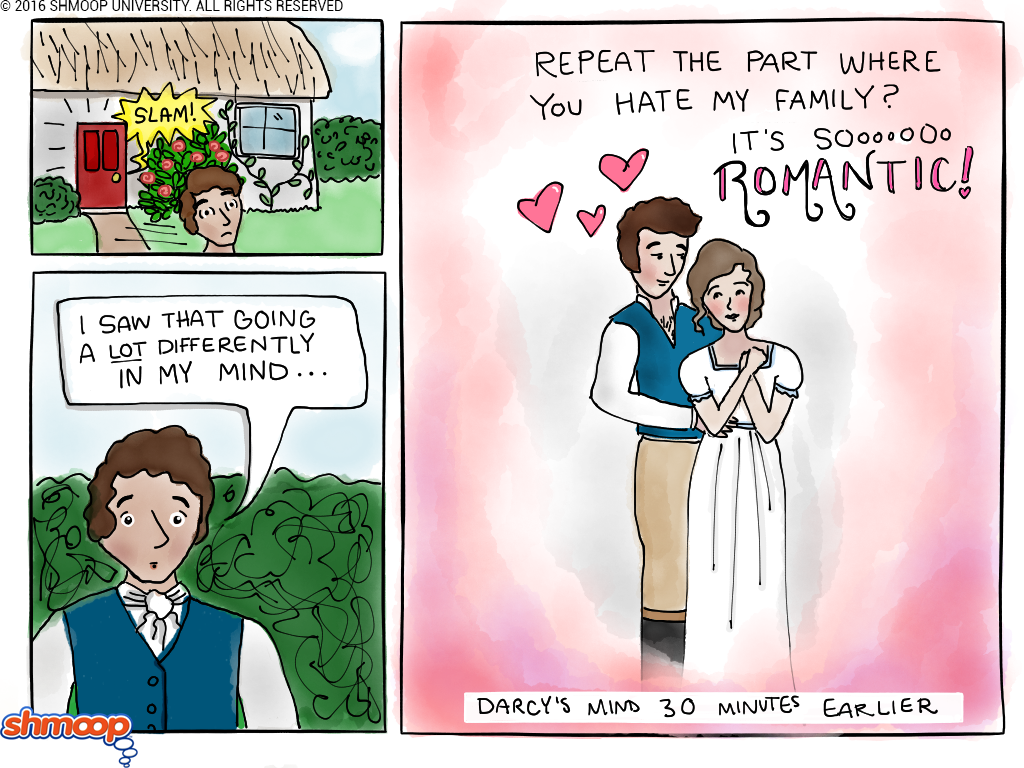 (Click the themes infographic to download.)
(Click the themes infographic to download.)
No matter what Stephenie Meyer wants to believe, Austen is much more Married with Children than Twilight. There are a lot of marriages, but not much love to go around. That's because most marriages are based either on economic necessity or on lust—and economic necessity might be a slightly better reason for marrying than lust, but it's still mediocre at best. And the idea that you'd leave your entire family to run off with an impoverished soldier/handsome vegetarian vampire? Pure idiocy. Romantic love is a privilege that most people never earn. And we do mean earn: love is an emotion available only to intelligent, mature adults. It's the crowning achievement of a good character.

Questions About Love
- What does "love" mean in this novel? Is it the same emotion we talk about today?
- When does Darcy begin to love Elizabeth rather than just think she's cute and bewitching?
- There are at least two marriages of convenience made during the course of the novel (Charlotte and Mr. Collins; Lydia and Wickham). Do we get a sense that everyone assumes love will eventually develop? Why or why not?
- Which characters think that love is a necessary part of adult life? Which don't? What does that say about them?
Chew on This
Of the entire Bennet family, only Jane and Elizabeth are capable of true romantic love.
Love is a relationship bonus, but it's not entirely necessary. Charlotte is happy because she has low expectations.